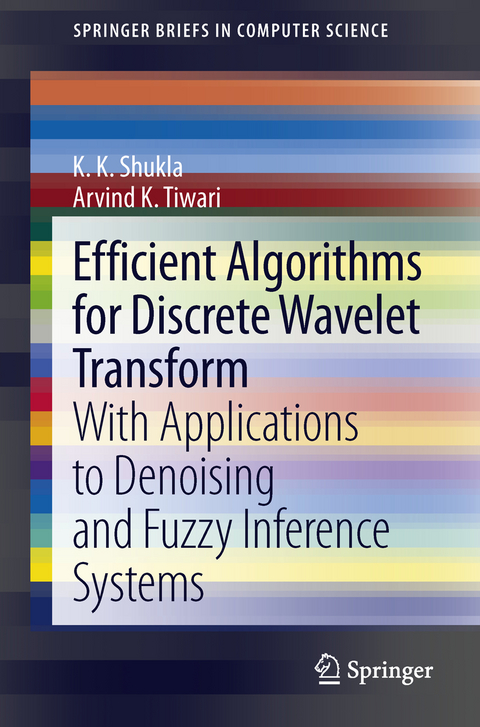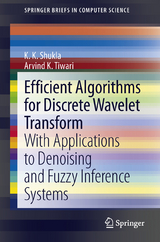Efficient Algorithms for Discrete Wavelet Transform
With Applications to Denoising and Fuzzy Inference Systems
Seiten
2013
|
2013 ed.
Springer London Ltd (Verlag)
978-1-4471-4940-8 (ISBN)
Springer London Ltd (Verlag)
978-1-4471-4940-8 (ISBN)
Due to its inherent time-scale locality characteristics, the discrete wavelet transform (DWT) has received considerable attention in signal/image processing. In the multistage DWT, coefficients are calculated recursively, and in addition to the wavelet decomposition stage, extra space is required to store the intermediate coefficients.
Due to its inherent time-scale locality characteristics, the discrete wavelet transform (DWT) has received considerable attention in signal/image processing. Wavelet transforms have excellent energy compaction characteristics and can provide perfect reconstruction. The shifting (translation) and scaling (dilation) are unique to wavelets. Orthogonality of wavelets with respect to dilations leads to multigrid representation. As the computation of DWT involves filtering, an efficient filtering process is essential in DWT hardware implementation. In the multistage DWT, coefficients are calculated recursively, and in addition to the wavelet decomposition stage, extra space is required to store the intermediate coefficients. Hence, the overall performance depends significantly on the precision of the intermediate DWT coefficients. This work presents new implementation techniques of DWT, that are efficient in terms of computation, storage, and with better signal-to-noise ratio in the reconstructed signal.
Due to its inherent time-scale locality characteristics, the discrete wavelet transform (DWT) has received considerable attention in signal/image processing. Wavelet transforms have excellent energy compaction characteristics and can provide perfect reconstruction. The shifting (translation) and scaling (dilation) are unique to wavelets. Orthogonality of wavelets with respect to dilations leads to multigrid representation. As the computation of DWT involves filtering, an efficient filtering process is essential in DWT hardware implementation. In the multistage DWT, coefficients are calculated recursively, and in addition to the wavelet decomposition stage, extra space is required to store the intermediate coefficients. Hence, the overall performance depends significantly on the precision of the intermediate DWT coefficients. This work presents new implementation techniques of DWT, that are efficient in terms of computation, storage, and with better signal-to-noise ratio in the reconstructed signal.
Introduction.- Filter Banks and DWT.- Finite Precision Error Modeling and Analysis.- PVM Implementation of DWT-Based Image Denoising.- DWT-Based Power Quality Classification.- Conclusions and Future Directions.
| Reihe/Serie | SpringerBriefs in Computer Science |
|---|---|
| Zusatzinfo | 31 Illustrations, color; 15 Illustrations, black and white; IX, 91 p. 46 illus., 31 illus. in color. |
| Verlagsort | England |
| Sprache | englisch |
| Maße | 155 x 235 mm |
| Themenwelt | Informatik ► Grafik / Design ► Digitale Bildverarbeitung |
| Informatik ► Theorie / Studium ► Algorithmen | |
| Informatik ► Theorie / Studium ► Künstliche Intelligenz / Robotik | |
| Technik ► Elektrotechnik / Energietechnik | |
| Schlagworte | discrete wavelet transform • Efficient Algorithms • Error Analysis • Fuzzy Expert Systems • Image Processing • Noise Cancellation • Parallel Programming • parallel virtual machine • Signal Processing |
| ISBN-10 | 1-4471-4940-8 / 1447149408 |
| ISBN-13 | 978-1-4471-4940-8 / 9781447149408 |
| Zustand | Neuware |
| Haben Sie eine Frage zum Produkt? |
Mehr entdecken
aus dem Bereich
aus dem Bereich
Modelle für 3D-Druck und CNC entwerfen
Buch | Softcover (2022)
dpunkt (Verlag)
CHF 48,85
alles zum Drucken, Scannen, Modellieren
Buch | Softcover (2024)
Markt + Technik Verlag
CHF 34,90




